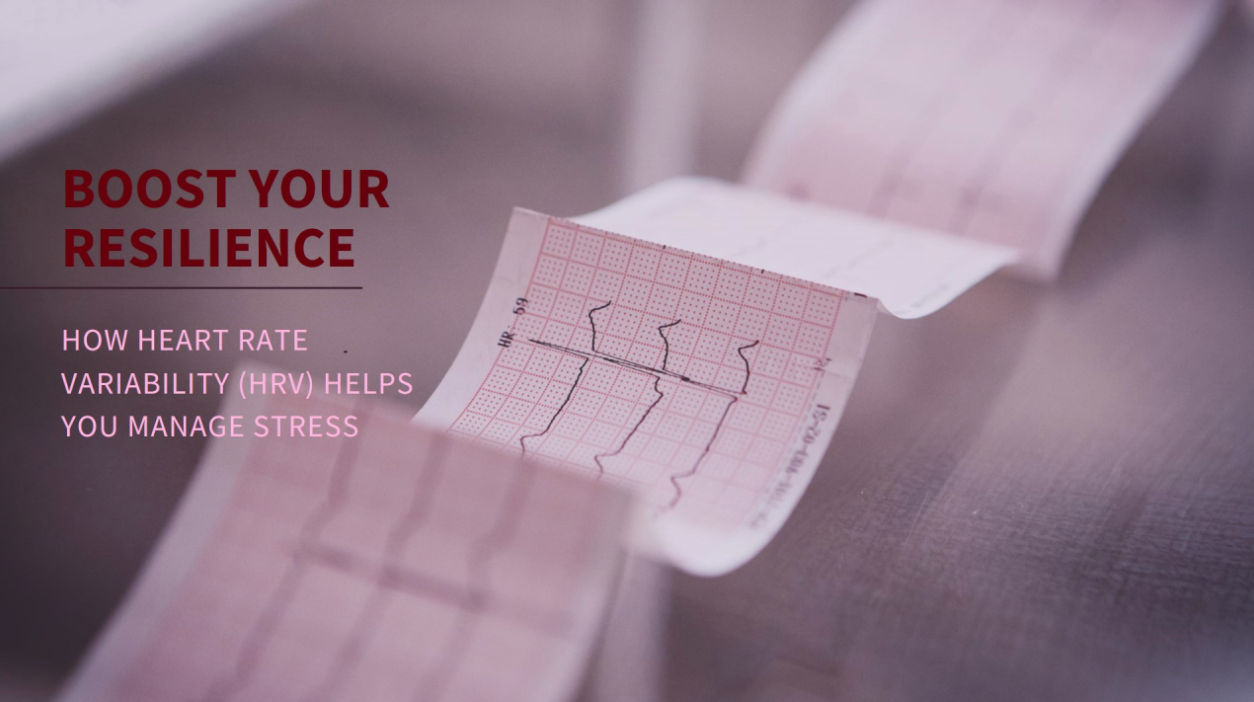Boost Your Resilience: How Heart Rate Variability (HRV) Helps You Manage Stress

I want to share something powerful with you that’s had a huge impact on my health and stress levels—and it might just be the game-changer you’ve been looking for too. It’s called Heart Rate Variability (HRV). If you have not heard of HRV before, HRV is an incredible metric that measures how well your body is adapting to life’s ups and downs. It tracks the tiny variations in time between each heartbeat. A higher HRV means you’re in a more relaxed, restorative state (think: your body is in “rest and recharge” mode), while a lower HRV is a signal that your stress levels are up. I’ve been monitoring my HRV with my fitness tracker, and I’m so excited to tell you that over the past six months, I’ve increased my HRV by 118%! And the best part? I did it using just 4 simple tricks. I’d love to share them with you.
1. Eat Early: Give Your Body Time to Rest
One of the easiest ways to raise your HRV is to stop eating at least three hours before bed. It might not seem like a big deal, but when your body is still working on digesting a late meal, it can’t focus on the important work of recovery. I started finishing dinner earlier, and it’s made a noticeable difference in how rested and refreshed I feel each morning.
2. Set a Steady Sleep Routine
Consistency is key when it comes to sleep, and a solid routine can work wonders for your HRV. Going to bed and waking up at the same time every day—yes, even on weekends—helps your body settle into a rhythm that supports recovery.
To make this easier, I rely on a few simple things to help me unwind:
- No computer or phone when it’s time to wind down.
- There are apps blockers (like 1Focus, Opal, …) and you can install a Timer Wi-Fi Plug that shuts off the internet at night, helping you resist the urge to scroll if you do not want to rely on willpower alone. It can make all the difference!
3. Magnesium L-Threonate: The Right Supplement for Rest
I’ve added magnesium threonate to my routine, and it’s been a game-changer for my sleep. This particular form of magnesium crosses the blood-brain barrier, helping to improve your deep sleep. After just a week of taking 2 grams per day, I was getting an extra 20 minutes of deep sleep every night! Make sure to invest in a high-quality magnesium supplement, though—cheap ones aren’t as effective and could be a waste of money.
4. Eat Omega-3's for a Healthier Heart and Mind
Omega-3s, especially EPA, are fantastic for raising your HRV. I’ve added more EPA-rich foods (like fatty fish) to my diet, and the results have been amazing. Omega-3s support both your digestive and nervous systems, and in nature, things like your heart and breathing tend to harmonize when everything’s in balance. Your heart is like a conductor for the rest of your organs—when it’s in sync, everything else works better too.
The Science Behind HRV
HRV has been studied for decades, and research shows it’s one of the best indicators of overall health. In fact, HRV is an even better predictor of disease than things like cholesterol, smoking, or poor diet. When your heart responds well to stress, your whole body benefits. But when your heart isn’t adapting as it should, other systems start to struggle too.
Here’s something really interesting: your emotions can have a direct impact on your HRV.
Negative emotions like stress or anger can lower your HRV, while positive emotions—like gratitude or joy—can raise it. And the best part? There are simple techniques you can practice to improve your HRV in just a few minutes.
Try This HeartMath Technique for Stress Relief
Here’s a little exercise I love to use when I need to calm down or just want to feel more centered:
- Think about someone or something you truly appreciate—like your kids when they finally fall asleep or your pet who stares at you like you’re the most interesting person in the world. It’s those little moments of gratitude that can help improve your HRV and reduce stress. Plus, who doesn’t feel more relaxed after a good laugh or a snuggle with a pet? 🐶🐱
- Focus on that feeling of appreciation, and send it to your heart—right in the center of your chest.
- Do this for just a few minutes. It might feel simple, but research shows that even a quick session can have lasting benefits for your HRV, your mood, and your overall health.
Whether you’re feeling stressed or just looking for ways to take better care of yourself, I encourage you to try focusing on your HRV.
By making these small changes, I’ve seen such a positive shift in my stress resilience, my energy levels, and even my creativity.
I’m here cheering you on—give it a try and see how it feels for you!




